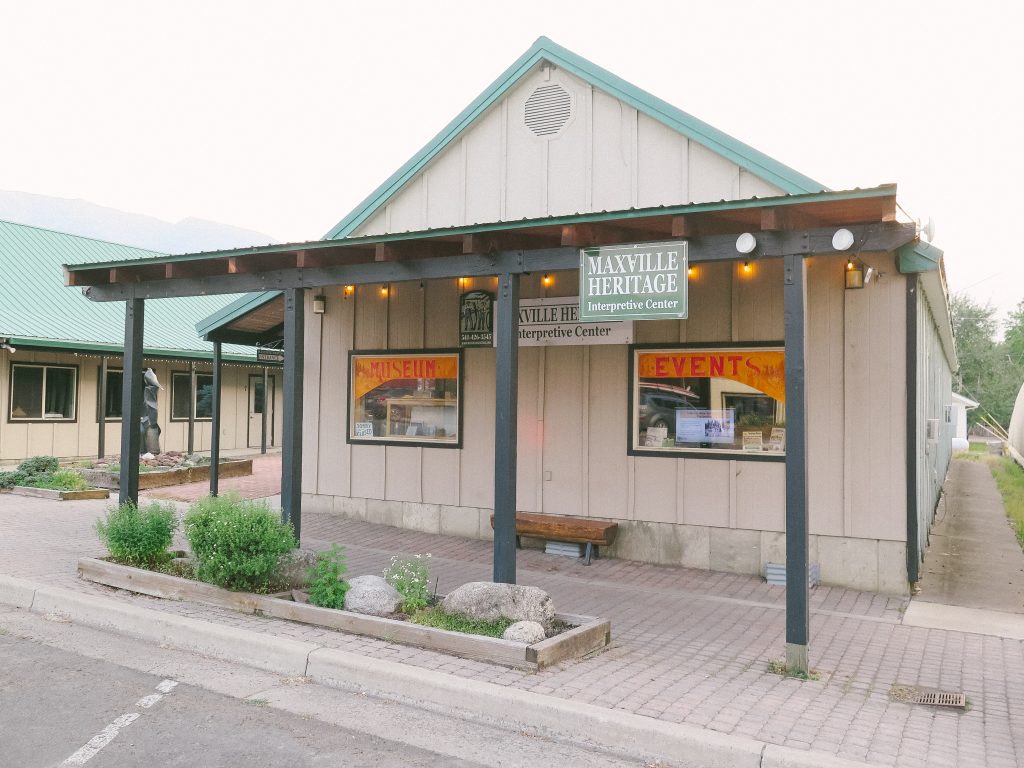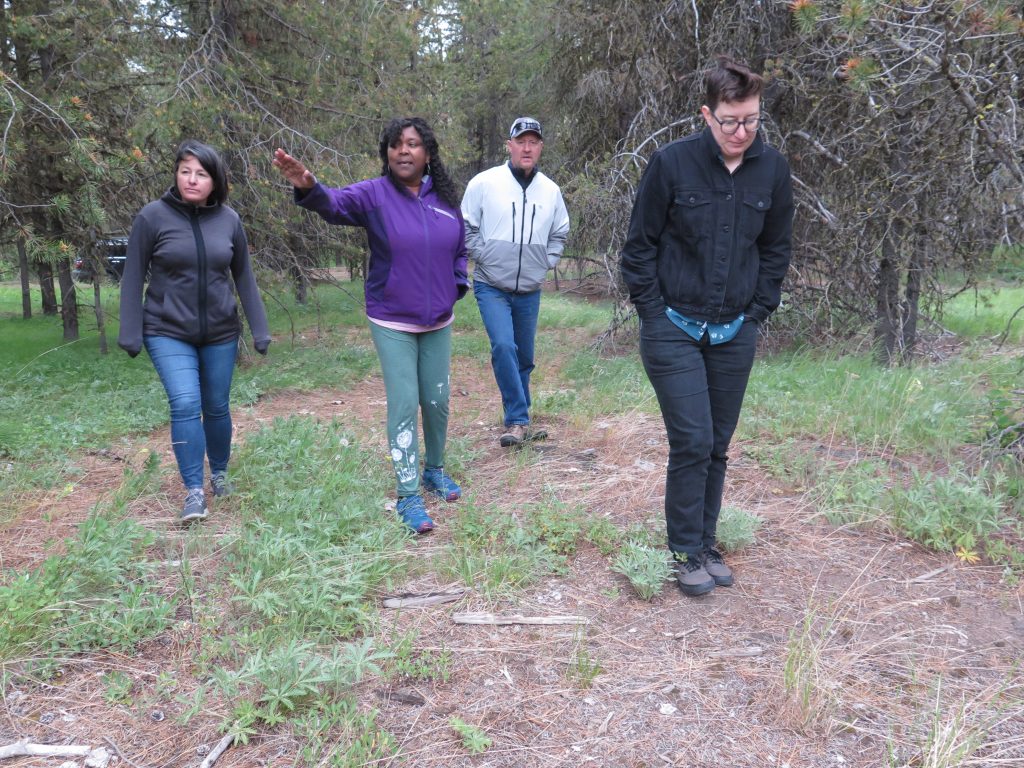
“Inclusivity Improves Historical Accuracy”
The Maxville Heritage Interpretive Center in Joseph, Oregon preserves and promotes the history of Maxville, Oregon, the former logging community that was once home to a diverse community of people from the early days of Oregon. The MHIC, founded 2008, has partnered with us and the Nez Perce Wallowa Homeland to develop a collection of cycling routes that put riders in connection with the diverse history of Wallowa County.
When we first presented the concept of our Connections ride guide to Gwen Trice, the Founder & Executive Director of the MHIC, she was overwhelmingly enthusiastic in her support. But she did offer this one cautionary comment, “Oh, I don’t know if you want to ride bicycles out here, it’s all gravel roads.” And with that said we simply could not get to Wallowa County quickly enough.

Cycle Oregon has passed through communities here before; we’ve pedaled through or made camp in Joseph, Enterprise and Lake Wallowa but those were large scale events with a focus on paved routes for road bikes. For Connections we wanted to focus on the closer connection of individual or small group visits with routes varying in length and surface type. The rise of “gravel” riding and its related equipment has opened the potential to travel just about anywhere by bicycle and one of those places we very much wanted to visit was Maxville.
Driving east into Wallowa County there’s a road sign on Hwy 82 just prior to the town of Wallowa that informs travelers of the direction and distance to Maxville. It’s a 13 mile climb up Promise Road with nearly all of it gravel but there is very little at the site that would suggest what was once here; Maxville is now something even more than a ghost town. From 1923 until 1933, though, Maxville was a bustling, yet segregated, community of 400 residents with a post office, commissary, hotel, doctor’s office, blacksmith, railroad shops, horse barn, and separate schools and baseball teams.
The Bowman-Hicks Lumber Company actively recruited Black loggers from the American South despite Oregon’s exclusion laws barring “free Negroes” to live and work in the state. In its heyday Maxville’s population was 15% Black whereas Oregon in current times is 2.2%. Maxville’s baseball Black & White teams competed against each other in town but were known to join forces to play other towns; it was said that this combined team was nearly unbeatable. But Maxville could not beat an economic downturn and in 1933 with lumber operations halted, Maxville’s population moved to Wallowa, La Grande, Vanport and as far as California. Nearly every piece was taken away and repurposed. In 2003, descendants of Maxville’s Black loggers began uncovering stories of the town and by 2007 the historical society opened its doors. Led by Gwen Trice, Maxville is set to return to prominence in a more inclusive history. Cycle Oregon is excited to help connect our community to these stories.
What is the one thing you want riders to connect to during their time here?
“That contrary to the expressed history of Oregon there is a black history here from early on. It is an American narrative with the addition of inclusivity. There is also a Filipino history. A Japanese history. There is a Greek history in Maxville. This is only a partial list of those who came for timber work in Oregon but acknowledging indigenous people’s timber culture is critical to understanding how the land was used prior to the occupation of forested lands and how we use it today and in the future. It is through an understanding of all communities that we come to a clearer, more complete Oregon history. Inclusivity improves historical accuracy. Bringing people into these historical spaces deepens their understanding and bicycles bring people with a special element of connection.”
The MHIC is gaining considerable momentum right now; what is the one thing you’re most excited about and how can people help with the MHIC mission?
“Thanks, we’re all very excited about the future for Maxville and Wallowa County, for sure. Our Honorary Acre program allows individuals to support the MHIC mission to secure ownership of the Maxville property. We want to own the site and return the last remaining historical structure to where it was then and as it was then. Individual donors can purchase an acre for the MHIC and will be recognized as a contributor which will also include an honorary tree planted in your name. For those who cannot afford a full acre, the Make an Acre program will pool donors together to reach the amount needed per acre. The Make and Acre program is special to me because it is a community within our community and will bring people together from all over. Our Honorary Acre program will ensure a future of preservation and stewardship for Maxville that will encourage increased awareness and visitation of the Wallowa County communities. And don’t forget… bring a bicycle!”
Maxville Heritage Interpretive Center
103 N Main St Joseph, OR 97846